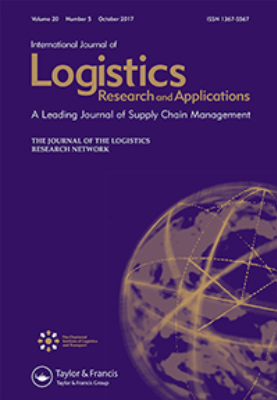The impact of anticipation of new technologies on operational and environmental performance: a strategy-structure-capabilities-performance perspective
IF 4.9
3区 管理学
Q1 MANAGEMENT
International Journal of Logistics Research and Applications
Pub Date : 2023-09-27
DOI:10.1080/13675567.2023.2260312
引用次数: 0
Abstract
ABSTRACTIn today’s volatile, uncertain, complex, and ambiguous environment, it is crucial for management to determine how to develop and maintain highly operational, sustainable organisations amid digitalisation. Digitalisation creates conditions for the emergence of new technologies, leading to heightened anticipation in this dynamic setting. However, their effects on firm performance are inconsistent. This study adopts the ‘Strategy-Structure-Capabilities-Performance’ framework to investigate how firms align the anticipation of new technologies (strategy), horizontal integration (structure), and agility (capability) to achieve remarkable operational and environmental performance. Data from a high-performance manufacturing database was used to identify 195 firms across 15 countries. The proposed model was assessed through regression and structural equation modelling. The findings imply that: (1) anticipation of new technologies contributes to the development of agility, (2) this anticipation, when aligned with horizontal integration, further enhances agility, and (3) increased agility can significantly improve both operational and environmental performance.KEYWORDS: Anticipation of new technologieshorizontal integrationagilitystrategy structure capabilities performance perspectivesustainabilityhigh performance manufacturing Data availability statementData are available on request from the authors.Disclosure statementNo potential conflict of interest was reported by the authors.新技术预期对运营和环境绩效的影响:战略-结构-能力-绩效视角
在当今多变、不确定、复杂和模糊的环境中,管理层决定如何在数字化中发展和维持高度可操作性、可持续发展的组织是至关重要的。数字化为新技术的出现创造了条件,从而提高了对这一动态环境的预期。然而,它们对企业绩效的影响是不一致的。本研究采用“战略-结构-能力-绩效”框架来研究企业如何将新技术(战略)、横向整合(结构)和敏捷性(能力)的预期结合起来,以实现卓越的运营和环境绩效。来自高性能制造数据库的数据用于确定15个国家的195家公司。通过回归和结构方程模型对所提出的模型进行评估。研究结果表明:(1)对新技术的预期有助于敏捷性的发展;(2)当这种预期与横向集成相结合时,进一步增强了敏捷性;(3)增加的敏捷性可以显著提高运营绩效和环境绩效。关键词:新技术预测、横向集成、敏捷性、战略结构、能力、绩效视角、可持续性、高性能制造数据可用性声明数据可根据作者的要求提供。披露声明作者未报告潜在的利益冲突。
本文章由计算机程序翻译,如有差异,请以英文原文为准。
求助全文
约1分钟内获得全文
求助全文
来源期刊
CiteScore
13.70
自引率
9.10%
发文量
71
期刊介绍:
International Journal of Logistics: Research & Applications publishes original and challenging work that has a clear applicability to the business world. As a result the journal concentrates on papers of an academic journal standard but aimed at the practitioner as much as the academic. High quality contributions are therefore welcomed from both academics and professionals working in the field of logistics and supply chain management. Papers should further our understanding of logistics and supply chain management and make a significant original contribution to knowledge. In this context the term "logistics" is taken in its broadest context as "the management of processes, flow of materials and associated information along the entire supply chain.

 求助内容:
求助内容: 应助结果提醒方式:
应助结果提醒方式:


